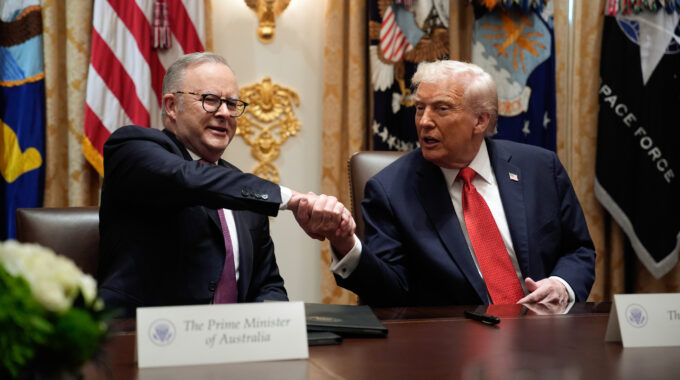USA and Australia Sign Multi-Billion Dollar Agreement on Critical Rare Earth Metals

In a landmark move, leaders from the United States and Australia have signed a significant deal worth 8.5 billion dollars aimed at strengthening cooperation in the field of critical mineral resources.
During the signing ceremony at the White House, U.S.
President Donald Trump and Australian Prime Minister Anthony Albanese committed to investing at least one billion dollars each over the next six months into projects focused on extracting and processing rare earth elements.
The overarching goal of this deal is to secure a stable and independent supply of these essential materials for the production of electronics, batteries, semiconductors, and military technologies, especially amid the increasing control China exerts over the global rare earth market.
Trump highlighted that within a year, the combined stockpiles of these critical minerals could surpass what is manageable, underscoring the urgency of diversifying supply sources.
Albanese emphasized that this agreement elevates U.S.-Australia relations to a new strategic level, responding directly to China’s recent restrictions on exports of magnets containing even trace amounts of rare earth components.
Beijing announced plans to require foreign companies to obtain special permits for exporting magnets with rare earth elements, intensifying concerns among Western allies seeking to reduce dependence on Chinese supplies.
U.S.
officials consider these moves a way for China to leverage its dominance in global supply chains and exert economic pressure.
The Export-Import Bank of the United States has already sent several letters of intent totaling over 2.2 billion dollars to finance Australian companies like Arafura Rare Earths and Northern Minerals, which are engaged in mining and processing the critical minerals.
An important aspect of the agreement involves establishing new production facilities, such as a gallium plant in Western Australia that aims to supply up to 10% of the world’s demand for this crucial metal used in semiconductors and defense industries.
Australia intends to provide up to 200 million dollars in concessional financing under this initiative, with the U.S.
investing in exchange for future purchase rights.
Meanwhile, international markets face ongoing challenges: the European Union prepares for potential production halts due to China’s strict export controls, while India seeks to obtain rare earth samples from Myanmar through influential rebel groups.
Additionally, Turkey is discussing the development of rare earth stockpiles in Western Anatolia as part of its efforts to balance technological influence from China and Russia, who have already established large-scale operations in this sector.

